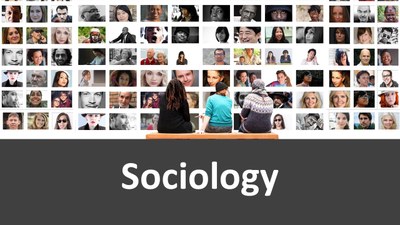About the Department
Our Mission Statement
In its mission statement, the Department of Sociology "...expects its students to be able to think within a sociological framework and to develop a broader social consciousness through the use of basic theories, concepts, and research skills in the discipline. The Department also expects our graduates to be able to recognize the subfields that comprise the discipline and to have a basic understanding of the historical roots of the discipline. The Department's undergraduate curriculum is organized around the interrelated themes of diversity and inequality in societies across time and place. In emphasizing such themes the department is preparing students for understanding and dealing with the ways in which social diversity and social inequality will influence their own lives as well as the organization and processes of change in the larger society.
"Within the context of the general liberal arts degree, we expect our students to develop skills for critical thinking, to know techniques for designing and carrying out research, to know how to apply various statistical procedures for analyzing data, to be able to evaluate research and argumentation to assess the validity of knowledge claims, and to enhance their writing and other communications skills."
The work of sociologists is increasingly important as diverse groups endeavor to overcome inequality, and as society and social institutions work to embrace diverse cultures and populations. Thus, the department strives to advance understandings of the sociological foundations of inequality as sources of conflict among diverse groups. The study of diversity and inequality also includes an examination of the important contributions various social groups have made to society, the barriers to their full participation in society, and the efforts they have made to achieve equality. An appreciation of the nature and consequences of diversity and inequality is essential for understanding social forces and social structures, as well as group processes and organizational dynamics and the way these affect individual life chances. Ultimately, the Department of Sociology helps to advance a deeper, and often a counter-intuitive understanding of inequality - which is essential to the effective formulation and implementation of democratic social policy and is relevant to many careers, including those in research, academia, business, education, government, law, medicine, social services, and more.
Our Department Members
The Department of Sociology has 13 full-time faculty who teach in our undergraduate and graduate programs and work with our graduate students, eleven of whom are graduate teaching assistants or university fellows. We also have several adjunct faculty, all of whom are either alumni of our graduate programs or have been teaching for the department for many years, and we have three staff members.
Our Degree Programs
The Department of Sociology’s course offerings at the undergraduate level are wide-ranging and include: aging, criminology, economic life, deviance, death and dying, education, environment, families, gender, global poverty, human sexuality, immigration and identity, leisure, medical sociology, race and ethnicity, social problems, social stratification, sport, urban sociology, and women's health -- to name but a few. At the master's level, courses include an emphasis on research methodologies, intersectionality, and understanding social problems, and the doctoral program emphasizes continued exploration of statistical analyses, theory, intersectionality, and social policy.
The University of Louisville offers the following degrees: bachelor of arts and bachelor of science, both of which are available as fully online degrees (along with minors in sociology, diversity and inequality, sociology of culture, and health, medicine, and well-being), master of arts, and doctor of philosophy. If you have questions about any of these degree programs, contact Dr. Jonetta Weber, Undergraduate Program Mentor and Graduate Program Advisor in Sociology.
The Department of Sociology is a member of the College of Arts & Sciences
and not affiliated with the Kent School of Social Work.

